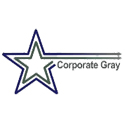
Corporate Gray Ex Military Job Fair VA 3 12 15
Corporate Gray “Military Friendly” Job Fair March 12 – The Waterford, Springfield, VA
You are invited to meet face-to-face with dozens of local and nationwide companies on March 12th at The Waterford in Springfield, Virginia. Job fair hours are 9 am to 12:30 pm with a free career transition seminar starting at 8 am.
It’s free to all job seekers and especially for those with military experience. Business attire recommended. Bring many copies of your resume.
Make the most of your time by meeting with representatives from many top companies, including:
Lockheed Martin, HP, Camber Corporation, State Farm, CSC, National Security Agency, AECOM, Accenture Sentara Healthcare and more, in one day in one place. To see the complete list of companies, registered to date, visit www.CorporateGray.com/jobfairs/342.
To pre-register, https://www.corporategray.com/applicants/new and create a free account. Then click the “Job Fairs” link on the menu bar and then the “register” link corresponding to the March 12 job fair in Springfield, VA. By so doing, you’ll receive the job fair employer directory the weekend before the event. And if you upload your resume, the companies will have early access to it.
Corporate Gray “Military Friendly” Job Fair
The Waterford, 6715 Commerce Street, Springfield, VA 22150
March 12 2015 * Job Fair hours: 9 am to 12:30 pm
Construct Your Resume
Will a prospective employer be motivated to learn more about you from reading your resume? Resumes are important tools for communicating your purpose and capabilities to employers. A resume advertises your qualifications to prospective employers and is your calling card for getting interviews. You can craft your resume by understanding the different types, construction elements, and refinements necessary to make it your effective first impression to employers.
Types of Resumes
There are three basic types of resumes:
1.The chronological resume lists your jobs in reverse chronological order with a description of what you did in each job. It shows the progression of your skills and experience with each assignment.
2.The functional resume describes your core competencies and the functions you can perform. It focuses on what you can do outside the context of specific jobs you’ve held.
3.The combination resume is a hybrid that combines your functional expertise with your work history. It typically doesn’t go back as far as a chronological resume, just highlighting your last two or three assignments.
For most transitioning military, we recommend the combination format because it highlights your functional expertise and also shows your most recent assignments.
Constructing Your Resume
What you should or should not include in your resume depends on your particular goals, as well as your situation and the needs of your employers – what do they want or need to know about you? At the very least, your resume should include the following five categories of information:
1. Contact Information – Who you are/how to contact you – your name, address, phone number and email address. You may also want to include your Linkedin profile’s url.
2.Objective – Including a job or career objective relevant to your skills and your employers needs tells an employer what it is you want to do, can do, and will do for them. Your objective should be employer-centered and incorporate both a skill and an outcome in reference to your major strengths and employer’s needs. This objective follows a basic job-skill-benefit format:
I want a _(position/job)_ where I will use my _(skills/abilities)_, which will result in _(outcomes/benefits)_.
For example:
A position in data analysis where skills in mathematics, computer programming, and deductive reasoning will contribute to new systems development.
3.Experience – What you can do – your patterns of skills and accomplishments.
4.Work History – What you have done – your job titles and activities performed.
5.Education – What you have learned – your education and training/degrees and certifications.
For more information

No comments:
Post a Comment